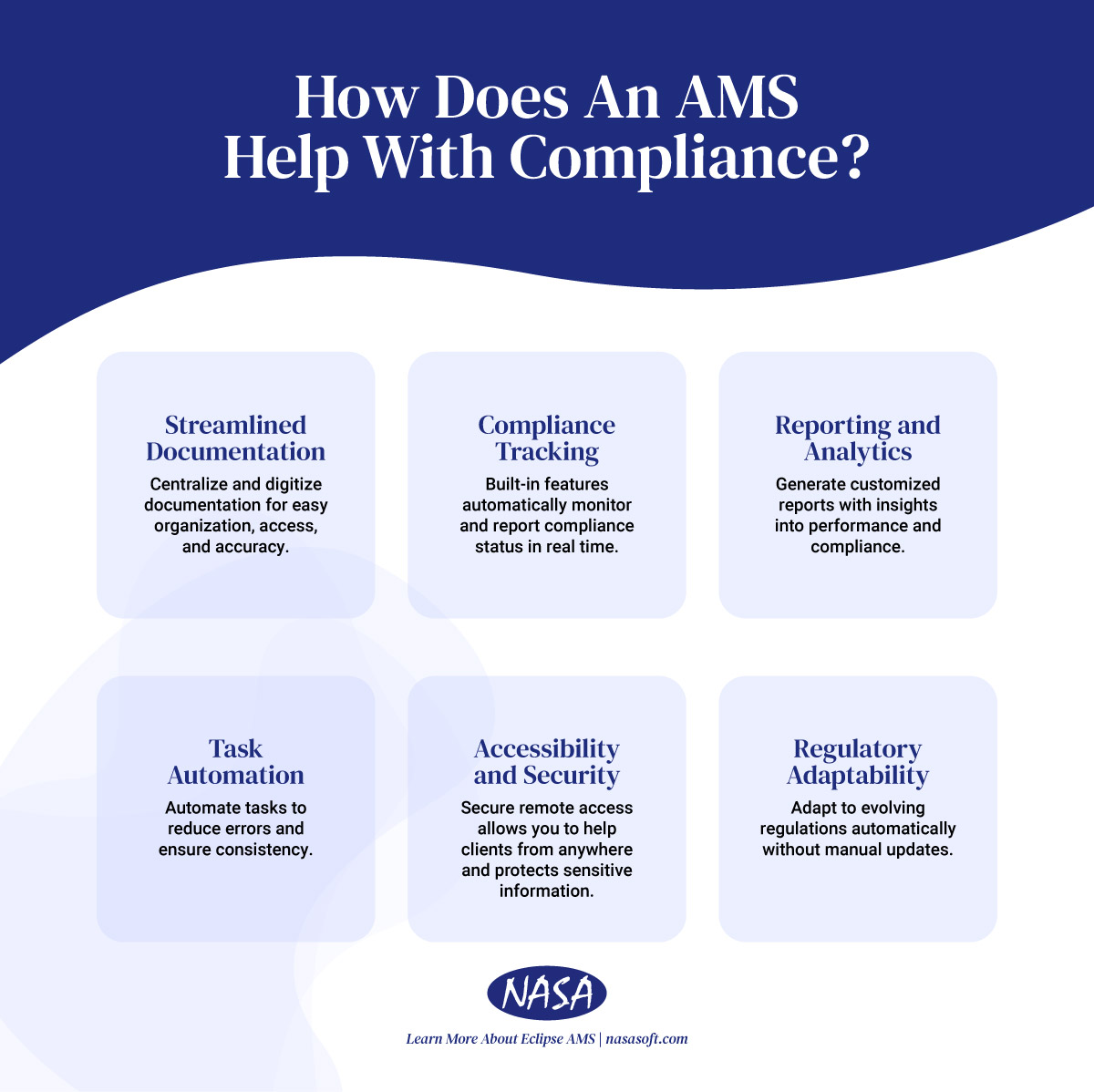Regulatory Compliance Best Practices for Independent Insurance Agents
Subscribe to our Blog
No insurance agent sets out to break the rules — after all, insurance is in place to protect people when rules get broken around them. So why is there so much emphasis on insurance regulatory compliance in our industry?
The answer is simply that the insurance industry is complex. Even the best insurance agent can sometimes step over the line if they’re not paying attention, no matter their intentions.
Navigating every compliance issue for every form of insurance would take several novels to describe, so instead, we’re here to highlight ten best practices for insurance agent compliance.
What Is Insurance Compliance?

Before delving into the top tips for compliance, let's establish what insurance compliance entails. Insurance industry compliance refers to the adherence to the laws, regulations and guidelines set forth by federal and state authorities that govern the insurance industry. These regulations are in place to protect consumers, maintain market stability and ensure fair and ethical business practices within the insurance sector.
Insurance compliance covers a broad spectrum of areas, including but not limited to:
- Licensing and certification
- Policy sales and underwriting
- Claims processing
- Data privacy
- Advertising and marketing.
Tips for Insurance Compliance
Now that we have a clear understanding of insurance compliance let's explore the top tips for ensuring that your insurance agency follows these regulations.
1. STAY INFORMED
The insurance industry constantly evolves, regularly introducing new laws, regulations and guidelines. It's imperative to stay informed about these changes by subscribing to industry publications, attending seminars and joining professional organizations. Additionally, make use of resources provided by your state's insurance department. Being well-informed is the first step in ensuring your insurance agency complies with regulatory rules!
2. DEVELOP A COMPLIANCE MANUAL
Another best practice for insurance compliance is to create a comprehensive compliance manual that outlines the procedures and protocols your agency must follow. This manual should cover every aspect of your business operations, from sales and marketing to underwriting and claims processing. It serves as a reference guide for your team and ensures everyone is on the same page.
3. REGULARLY TRAIN YOUR TEAM
Investing in ongoing training for your staff is crucial to staying compliant. Regular training sessions can keep your team updated on the latest requirements and help them understand their roles in ensuring compliance. Utilize online courses, in-house training and external compliance experts to equip your team with the necessary knowledge and skills.
4. DOCUMENT EVERYTHING
Proper documentation is the backbone of compliance. Make sure to maintain accurate records of all transactions, communications and processes within your agency. This documentation can serve as evidence of your compliance efforts if ever required. Implement a robust record-keeping system to safeguard your agency and its clients.
5. FOLLOW A CUSTOMER-CENTRIC APPROACH
Compliance isn't just about adhering to regulations — it's also about providing the best service to your clients. Take a customer-centric approach by explaining insurance policies in simple terms, addressing client concerns and ensuring transparency. This builds trust and ensures your clients have the information to make informed decisions.
6. CONDUCT INTERNAL AUDITS
Perform regular internal audits to assess your agency's compliance status across all aspects of your operations. This proactive approach can help you identify and rectify any compliance issues before they become serious problems.
7. PRIORITIZE DATA SECURITY
Protecting sensitive client information is paramount. Invest in robust data security measures to safeguard your clients' personal data. Data breaches not only result in regulatory fines but can also damage your agency's reputation!
8. IMPLEMENT A CODE OF CONDUCT
A well-defined code of conduct sets the standard for ethical behavior within your agency. It should encompass issues related to conflicts of interest, ethical marketing and the handling of client complaints. A strong code of conduct ensures that your team operates ethically and complies with industry standards.
9. STRIVE FOR CONTINUOUS IMPROVEMENT
Compliance is an ongoing effort! Continuously assess and improve your compliance procedures. Regularly review your compliance manual, address any issues found during internal audits and seek feedback from your team on ways to enhance your agency's efforts.
10. INSURANCE COMPLIANCE MANAGEMENT SOFTWARE
Technology plays a crucial role in ensuring compliance. Agency management software is a powerful tool that can streamline your compliance efforts and enhance your overall agency operations. Here's why insurance compliance software is an essential component for independent insurance agents:

The Best AMS for Insurance Agents
When you’re an insurance agent or a small insurance agency, you have enough to worry about without keeping track of piles of paperwork and digital documents. That’s why we worked to develop Eclipse.
Eclipse is a state-of-the-art, affordable insurance agency management system designed with compliance in mind. This AMS organizes and reports your client and financial data, keeps client communications up-to-date and concise and automates important reminders.
If you’re worried about converting all your digital files to a new system, we’ve also got that covered. NASA offers low-cost data conversion services that make switching easy.
Ready to step into the future of insurance? Request a demo of Eclipse today, and make organization and compliance second nature in your insurance business.
Topics: Independent Insurance Agency | Insurance Industry | Insurance Software

